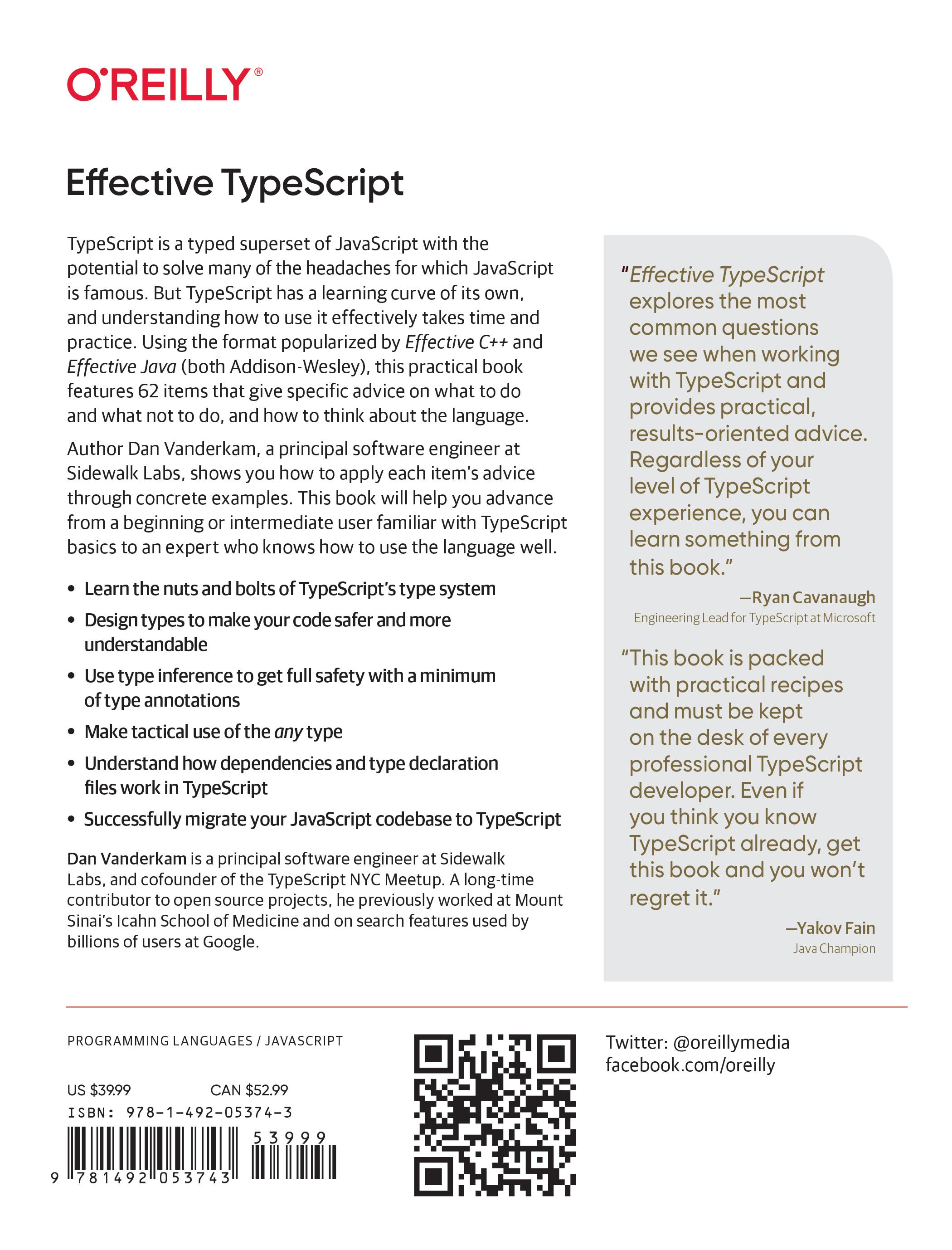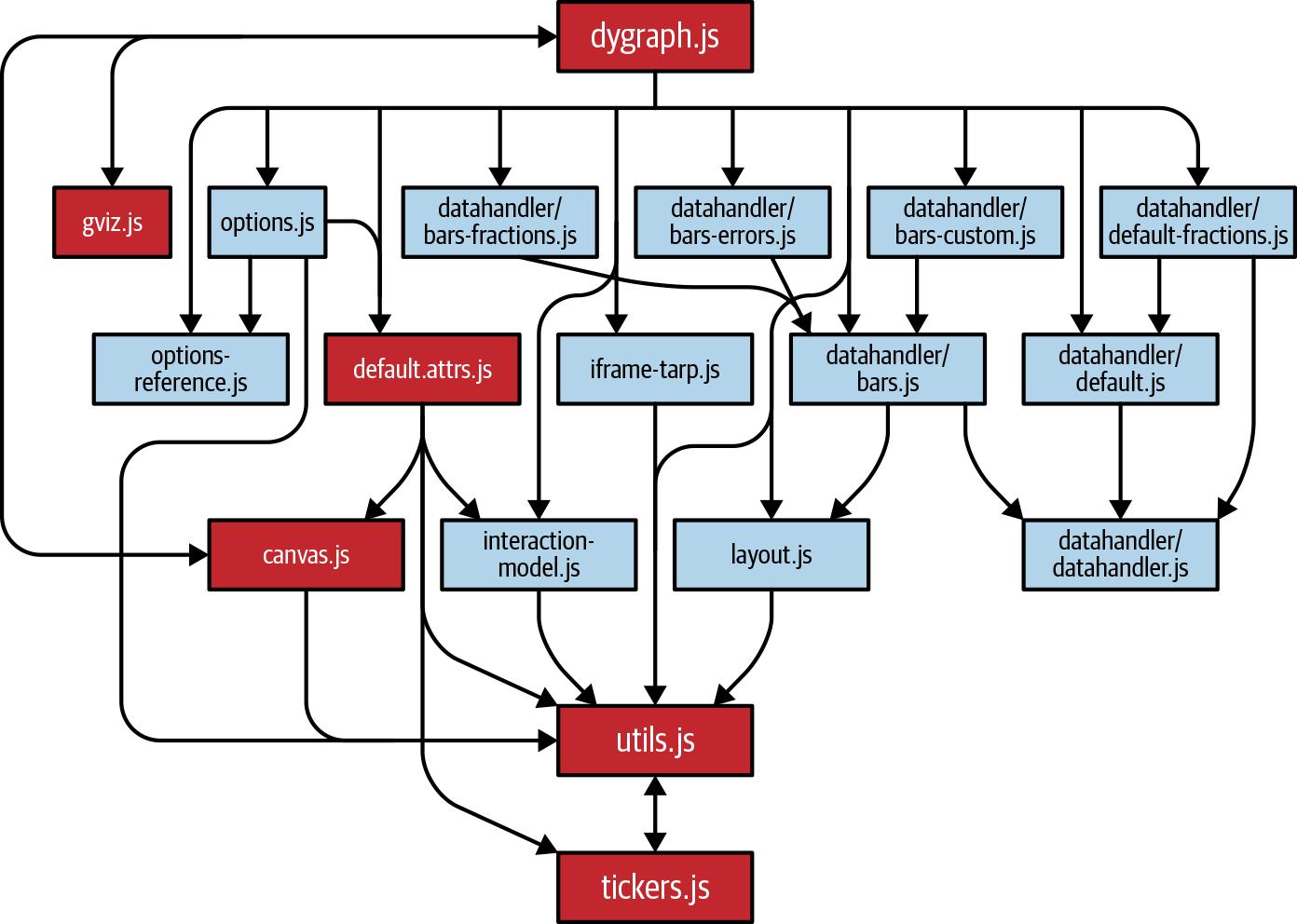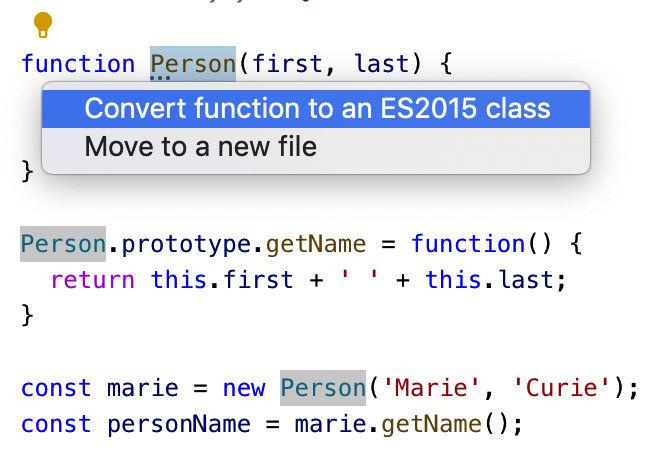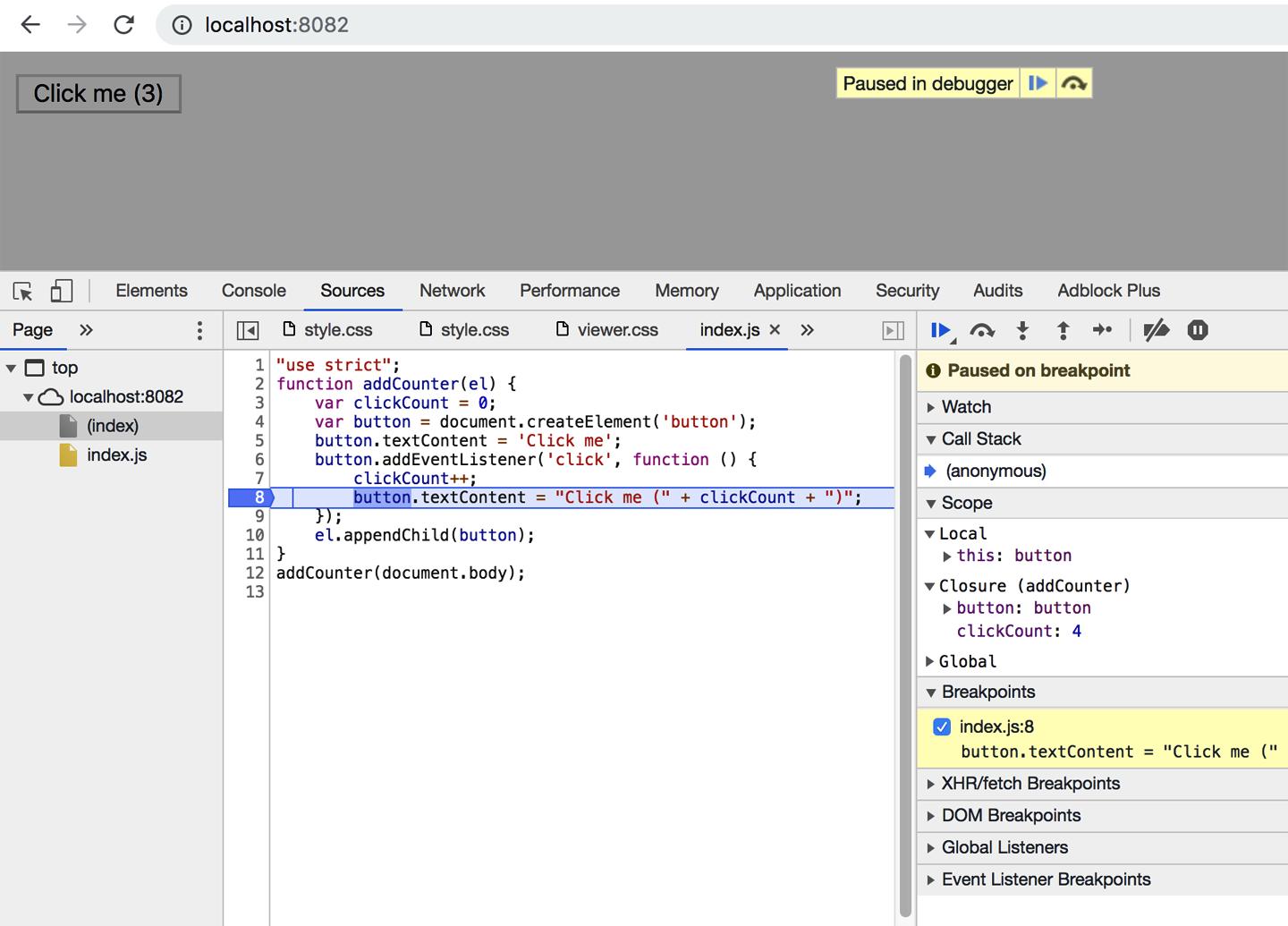
2 minute read
Item 54: Know How to Iterate Over Objects
future. Unless you’re using Angular or another framework that requires annotations and until they’re standardized, don’t use TypeScript’s decorators.
Things to Remember
• By and large, you can convert TypeScript to JavaScript by removing all the types from your code. • Enums, parameter properties, triple-slash imports, and decorators are historical exceptions to this rule. • In order to keep TypeScript’s role in your codebase as clear as possible, I recom‐mend avoiding these features.
Item 54: Know How to Iterate Over Objects
This code runs fine, and yet TypeScript flags an error in it. Why?
const obj = { one: 'uno', two: 'dos', three: 'tres', }; for (const k in obj) { const v = obj[k]; // ~~~~~~ Element implicitly has an 'any' type // because type ... has no index signature
Inspecting the obj and k symbols gives a clue:
const obj = { /* ... */ }; // const obj: { // one: string; // two: string; // three: string; // } for (const k in obj) { // const k: string // ...
The type of k is string, but you’re trying to index into an object whose type only has three specific keys: 'one', 'two', and 'three'. There are strings other than these three, so this has to fail.
Plugging in a narrower type declaration for k fixes the issue:
let k: keyof typeof obj; // Type is "one" | "two" | "three" for (k in obj) {
const v = obj[k]; // OK
So the real question is: why is the type of k in the first example inferred as string
rather than "one" | "two" | "three"?
To understand, let’s look at a slightly different example involving an interface and a function:
interface ABC { a: string; b: string; c: number;
function foo(abc: ABC) { for (const k in abc) { // const k: string const v = abc[k]; // ~~~~~~ Element implicitly has an 'any' type // because type 'ABC' has no index signature
It’s the same error as before. And you can “fix” it using the same sort of declaration (let k: keyof ABC). But in this case TypeScript is right to complain. Here’s why:
const x = {a: 'a', b: 'b', c: 2, d: new Date()}; foo(x); // OK
The function foo can be called with any value assignable to ABC, not just a value with “a,” “b,” and “c” properties. It’s entirely possible that the value will have other proper‐ties, too (see Item 4). To allow for this, TypeScript gives k the only type it can be con‐fident of, namely, string. Using the keyof declaration would have another downside here:
function foo(abc: ABC) { let k: keyof ABC; for (k in abc) { // let k: "a" | "b" | "c" const v = abc[k]; // Type is string | number
If "a" | "b" | "c" is too narrow for k, then string | number is certainly too nar‐row for v. In the preceding example one of the values is a Date, but it could be any‐thing. The types here give a false sense of certainty that could lead to chaos at runtime.
So what if you just want to iterate over the object’s keys and values without type errors? Object.entries lets you iterate over both simultaneously:







